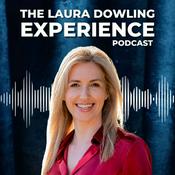185 episodes

Prevention in primary care, elinzanetant for menopause, and a farewell to David.
03/12/2025 | 16 mins.
In this podcast accompanying the December issue of the DTB (https://dtb.bmj.com/content/63/12), David Phizackerley (DTB Editor) is joined by Syba Sunny (Clinical Editor). David and Syba discuss this month’s editorial, written by Julian Treadwell, academic GP and DTB editorial board member, which delves into the challenges of prioritising preventative medicine in primary care (https://dtb.bmj.com/content/63/12/178). They then talk about a review article that provides an overview of the new drug elinzanetant, a non-hormonal treatment for vasomotor symptoms associated with menopause (https://dtb.bmj.com/content/63/12/182). Finally, the journal bids an emotional farewell to David, who is retiring after many good years at the DTB. Please subscribe to the DTB podcast to get episodes automatically downloaded to your mobile device and computer. Also, please consider leaving us a review or a comment on the DTB Podcast iTunes podcast page. If you want to contact us, please email [email protected]. Thank you for listening.

Medicines - but at what cost, direct penicillin allergy challenge, and prescribing mistakes
03/11/2025 | 20 mins.
In this podcast accompanying the November issue of DTB (https://dtb.bmj.com/content/63/11) David Phizackerley (DTB Editor) is joined by Syba Sunny (DTB Clinical Editor). David and Syba discuss the editorial that argues that NHS budgets should not be used to ensure that pharmaceutical companies invest in the UK (https://dtb.bmj.com/content/63/11/162). They talk about a DTB Select article that summarises a systematic review and meta-analysis of trials that assessed patients with a reported penicillin or beta-lactam allergy who underwent direct oral penicillin challenge (https://dtb.bmj.com/content/63/11/163). They finish by discussing the main article that explores the intersection of medication errors, prescribing errors, harms resulting from the use of medicines and some legal consequences (https://dtb.bmj.com/content/63/11/168). Please subscribe to the DTB podcast to get episodes automatically downloaded to your mobile device and computer. Also, please consider leaving us a review or a comment on the DTB Podcast iTunes podcast page. If you want to contact us please email [email protected]. Thank you for listening.

Orphan drugs, allopurinol and CVD, mavacamten for obstructive hypertrophic cardiomyopathy
01/10/2025 | 30 mins.
In this podcast accompanying the October issue of DTB (https://dtb.bmj.com/content/63/10) David Phizackerley (DTB Editor) is joined by Julian Treadwell (DTB Associate Editor). David and Julian discuss the editorial that highlights a few of the challenges associated with the introduction of an orphan medicine into clinical practice (https://dtb.bmj.com/content/63/10/146). They talk about a DTB Select article that summarises a randomised clinical trial that assessed the effect of allopurinol on cardiovascular outcomes in people with ischaemic heart disease who did not have gout (https://dtb.bmj.com/content/63/10/147). They finish by discussing the main article that provides an overview of the evidence for mavacamten (▼Camzyos) for the treatment of symptomatic obstructive hypertrophic cardiomyopathy in adults (https://dtb.bmj.com/content/63/10/150). Links GP Evidence: https://gpevidence.org/ Preventing Overdiagnosis 2025 International Conference: https://www.cebm.ox.ac.uk/preventing-overdiagnosis Please subscribe to the DTB podcast to get episodes automatically downloaded to your mobile device and computer. Also, please consider leaving us a review or a comment on the DTB Podcast iTunes podcast page. If you want to contact us please email [email protected]. Thank you for listening.

Antibiotic susceptibility reports, deprescribing, and heart failure drugs
05/9/2025 | 17 mins.
In this podcast accompanying the September issue of DTB (https://dtb.bmj.com/content/63/9), David Phizackerley (DTB Editor) is joined by Syba Sunny (DTB Clinical Editor). David and Syba discuss the editorial that highlights changes to antibiotic susceptibility reports, and in particular, the change to the 'I' classification from 'intermediate' to 'susceptible, increased exposure’ (https://dtb.bmj.com/content/63/9/130). They talk about a DTB Select article that summarises an evidence review of deprescribing interventions in primary care and the importance of collaborative multidisciplinary teams, education and training, and shared-decision making (https://dtb.bmj.com/content/63/9/131). They finish by discussing the main article that provides an overview of pharmacological management of chronic heart failure with reduced ejection fraction and the four main groups of drugs that form the four pillars of treatment (https://dtb.bmj.com/content/63/9/133). Please subscribe to the DTB podcast to get episodes automatically downloaded to your mobile device and computer. Also, please consider leaving us a review or a comment on the DTB Podcast iTunes podcast page. If you want to contact us please email [email protected]. Thank you for listening.

AI and DTB, drug safety, tirzepatide, and lecanemab for Alzheimer's disease
31/7/2025 | 38 mins.
In this podcast accompanying the August issue of DTB (https://dtb.bmj.com/content/63/8), David Phizackerley (DTB Editor) is joined by James Cave (former DTB Editor-in-Chief). David and James discuss an editorial generated by artificial intelligence (AI) (https://dtb.bmj.com/content/63/8/114) which looks at the role of AI in publishing. They talk about a DTB Forum article (https://dtb.bmj.com/content/63/8/115) that explores some of the practical problems of implementing drug safety alerts. A DTB Select article (https://dtb.bmj.com/content/63/8/117) provides an overview of a double-blind, randomised, placebo-controlled trial of tirzepatide for weight reduction in people without diabetes. They finish by reviewing the main article (https://dtb.bmj.com/content/63/8/118) that provides an overview of the evidence for lecanemab for the treatment of mild cognitive impairment and mild dementia due to Alzheimer’s disease. Link BMJ policy on AI use: https://www.bmj.com/content/ai-use Please subscribe to the DTB podcast to get episodes automatically downloaded to your mobile device and computer. Also, please consider leaving us a review or a comment on the DTB Podcast iTunes podcast page. If you want to contact us please email [email protected]. Thank you for listening.
More Health & Wellness podcasts
Trending Health & Wellness podcasts
About DTB Podcast
Listen to DTB Podcast, Are We There Yet ? with Kathryn Thomas and many other podcasts from around the world with the radio.net app

Get the free radio.net app
- Stations and podcasts to bookmark
- Stream via Wi-Fi or Bluetooth
- Supports Carplay & Android Auto
- Many other app features
Get the free radio.net app
- Stations and podcasts to bookmark
- Stream via Wi-Fi or Bluetooth
- Supports Carplay & Android Auto
- Many other app features


DTB Podcast
download the app,
start listening.







































